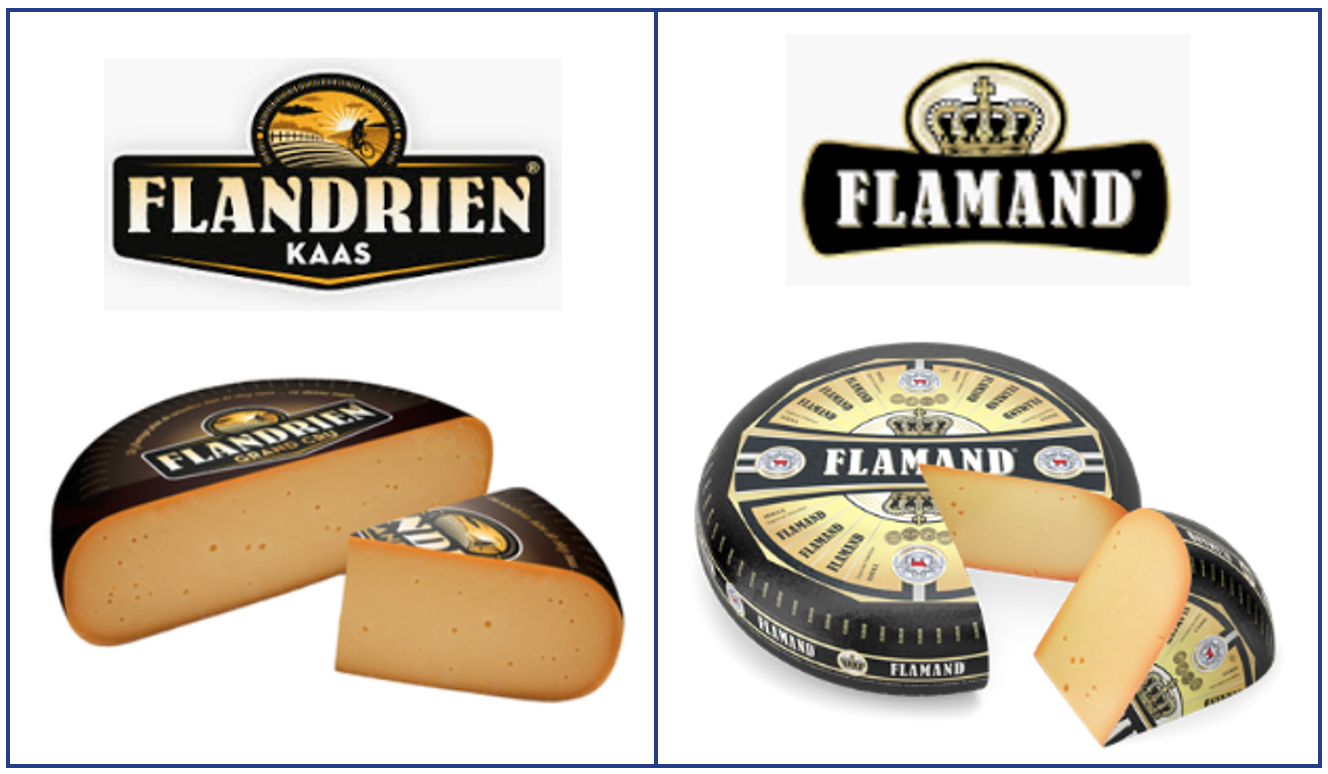The Belgian cheese maker Flandrien has been successful in preventing a cooperation of Dutch cheese makers (‘Coöperatieve Zuivelonderneming CONO B.A.’) from marketing their ‘Flamand’ cheese in Belgium.
FACTS
In a decision of 5 January 2021, the Dutch division of the Enterprise Court of Brussels, Belgium sided with Belgian cheese maker Flandrien in a trade mark dispute against one of its main competitors from Holland. Flandrien, winner and runner-up in a number of recent editions of the World Cheese Awards, claimed that consumers were likely to confuse its cheese marketed under the complex Union and Benelux trade mark reproduced in the left table, with the Flamand cheese reproduced in the right table:
DECISION
The court noted that, while the similarities on the visual and phonetic level were quite low, the conceptual similarity made up for that; to the average Belgian or Benelux consumer, the French words ‘Flandrien’ and ‘Flamand’ both refer to the Flemish inhabitants of Flanders, the largest part of Belgium. Together with the identity of the goods, the average to rather low degree of attentiveness on the part of consumers was likely to confuse consumers as to the origin of both cheeses. The fact that Flandrien had acquired a beginning of reputation further supported that conclusion.
On the same ground of likelihood of confusion, the court also cancelled the defendant’s Benelux trade mark, reproducing a Flamand cheese round.

SAY WHAT: ‘FLAMAND’ FOR A DUTCH CHEESE?
The matter also included an interesting aspect from a food law perspective: Flandrien argued that the defendant was not entitled to evoke any ‘Flemish’ origin of the cheese through branding of the cheese as ‘Flamand’ and making explicit references to Flanders in advertising, on the ground that the milk used for producing the cheese exclusively originated from cows in the Dutch Beemster polder, in Holland. Flandrien argued that the origin of the milk, rather than the maturing of cheese, which did take place in Belgium, was of preponderant importance to the quality of the goods. Therefore, the name ‘Flamand’ would deceive consumers into thinking the cheese is of Flemish origin, which is not the case. Flandrien relied on the recent EUIPO Board’s of Appeal decision in Irlandesa (R 1499/2016-G), which had invalidated the Union mark Irlandesa on the ground that consumers would believe the covered dairy products to originate from Ireland, whilst in reality they also originated from Holland. The Court did, however, not further assess the claim as it could not lead to a broader injunction.
The decision is still open to appeal.
The decision (in Dutch) can be read here.
Flandrien was represented by Paul Maeyaert and Jeroen Muyldermans.
If you wish to obtain more info on this or on FENCER’s other services, please contact Paul Maeyaert or Jeroen Muyldermans.

